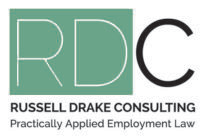The one thing that has become very obvious through the COVID-19 Lockdown is that many businesses lacked the flexibility within their structures, resources or employment terms and conditions to enable them to respond quickly to a rapidly changing world.
A recent study confirmed that the majority of businesses, of all shapes and sizes, operate with less than three (3) months of available funding and therefore face significant pressure to survive in the time of a crisis. This has been reinforced by the collapse of businesses such as rental car giant Hertz, as well as many small to medium enterprises locally. Had it not been for the Government Wage Subsidy programme many more businesses would have been facing the decision as to whether to shed more staff or close altogether.
So what can we take out of the last two (2) months that will help us to develop a more robust business for the future – with the reality being that, with the ease of global travel, this will not be the last ‘COVID’ type situation the world will have to endure.
Many companies that we are currently working with have recognised that a key to future sustainability and profitability will be to engage a workforce that is more flexible in the way that it operates with this being reflected within both the attitudes and behaviours of their staff and the employment documentation that will more comprehensively support the ability to change.
Employment legislation reinforces the need to consult with employees however, as we are aware, changes to terms and conditions can only occur as a result of the agreement of staff. Therefore, the ability to bring about rapid change within a crisis situation resulted in the ‘process’ becoming a large impediment to the implementation of urgent change. As a result of the ‘push-back’ from some employees, businesses were therefore forced in making ‘redundancy decisions’ that, while still needing to consult with staff, did not require the need to achieve agreement on the proposal.
In addition, we are already seeing a raft of personal grievance claims arriving at the employer’s door related to claims of changes (reductions) to employee wage and salary payments without written agreement.
Employment documentation, both within agreements and policies, need to have provisions to contemplate the need, and the ability, for the workforce to make rapid change. This should include ensuring that provisions are in place for wage or salary reductions in the event of an emergency, and should also cover all aspects from flexible working conditions (home or office), hours of work, and even the possibility of ‘furlough’ periods. If these are already recorded as “agreed provisions” the business, with less consultation and more urgency, will have a greater array of options open to it when rapid change is required.
Supporting this enhanced documentation will be a need to develop a culture and behaviours within the workplace that equips the staff to adapt and accept change more openly when this need occurs. It would be an understatement to suggest that the speed of which the COVID situation, and the announcement of the Government Lockdown, left us all feeling a high degree of uncertainty and anxiety. Therefore, promoting a more ‘change ready’ environment within the business will be a key ingredient in the development of a successful future workforce.
Now is the time to consider beginning to develop and implement these strategies as staff may well be more receptive to the acceptance of such change as the memory of COVID is still fresh in their minds.
If you wish to discuss the options open to you in developing a more future ready workplace please feel free to give us a call.

